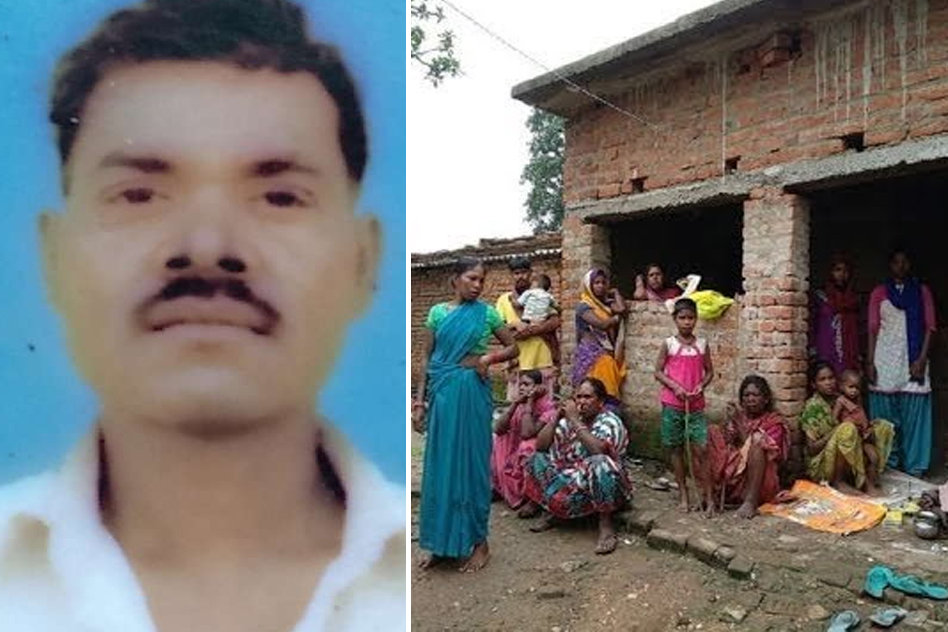
Jharkhand: No Ration Card, Father Of Six Dies Due To Hunger
27 July 2018 1:16 PM GMT
40-year-old Rajendra Birhor from Nawadih village in Jharkhand breathed his last on July 24, 2018. He died due to starvation. The deceased was diagnosed with jaundice a month ago at Rajendra Institute of Medical Sciences in Ranchi, where he was prescribed some medicines. The family of Rajendra Birhor declared that they could not afford the medicines required for his treatment and they remained hungry for days to save the life of the only breadwinner in the family.
According to Dainik Bhaskar, Shanti Devi, wife of Rajendra Birhor mentioned that they have six children and her husband earned a living by running a tractor. Due to his illness, the only source of income for the family had come to a standstill. She also claimed that they were not issued a ration card.
Immediately after Rajendra’s death, Block Development Officer (BDO) Manoj Gupta along with his team visited the victim’s family and offered Rs 10,000 and a quintal of food grains.
According to Manoj Gupta’s statement, Rajendra had died due to “prolonged illness”, and he denied the fact, that the cause of the death was starvation. However, the BDO acknowledged that the family was not provided with a ration card. The authorities also did not send the body for post-mortem.
This incident of hunger death is not the first in the endangered tribe of Birhor. The event occurs soon after the tragic death of Chintamani Malhar, another 40-year-old man of Birhor tribe who also died due to starvation in the same block on June 13, 2018. Malhar’s son said that ration card was not issued to them by the government officials.
Malhar’s family was offered Rs 5,000 and fifteen kg rice by Manoj Gupta (BDO). Yet again, the concerned official contradicts the reason for death, and mentioned that Malhar had died due to “prolonged illness” and not due to starvation.
About the Birhor Tribe
Birhor is one of the primitive tribes living in the districts of Hazaribagh, Giridih, Ranchi, Lohardaga, Palamu, Garhwa, Dhanbad, and Singhbhum in Jharkhand State. The population of the tribe is said to be only 10,000 which is dwindling day by day creating serious concerns for the government. The group was influenced to leave their traditional hunter-gatherer lifestyle and were encouraged to adapt a modern way of living.
National Food Security Act
According to the website of Department of food and Public Distribution,
The objective of this Act is to provide food and nutritional security in human life cycle approach, by ensuring access to adequate quantity of quality food at affordable prices to people. The Act provides for coverage of upto 75% of the rural population and upto 50% of the urban population for receiving subsidized foodgrains under Targeted Public Distribution System (TPDS), thus covering about two-thirds of the population. The eligible persons are entitled to receive 5 Kgs of foodgrains per person per month at subsidised prices of Rs. 3/2/1 per Kg for rice/wheat/coarse grains. The existing Antyodaya Anna Yojana (AAY) households, which constitute the poorest of the poor, will continue to receive 35 Kgs of foodgrains per household per month.
Despite the schemes introduced by the government to nurture the poorest of the country, they fail to receive ration cards and their share of basic facilities and eventually succumb to hunger deaths.
 All section
All section













